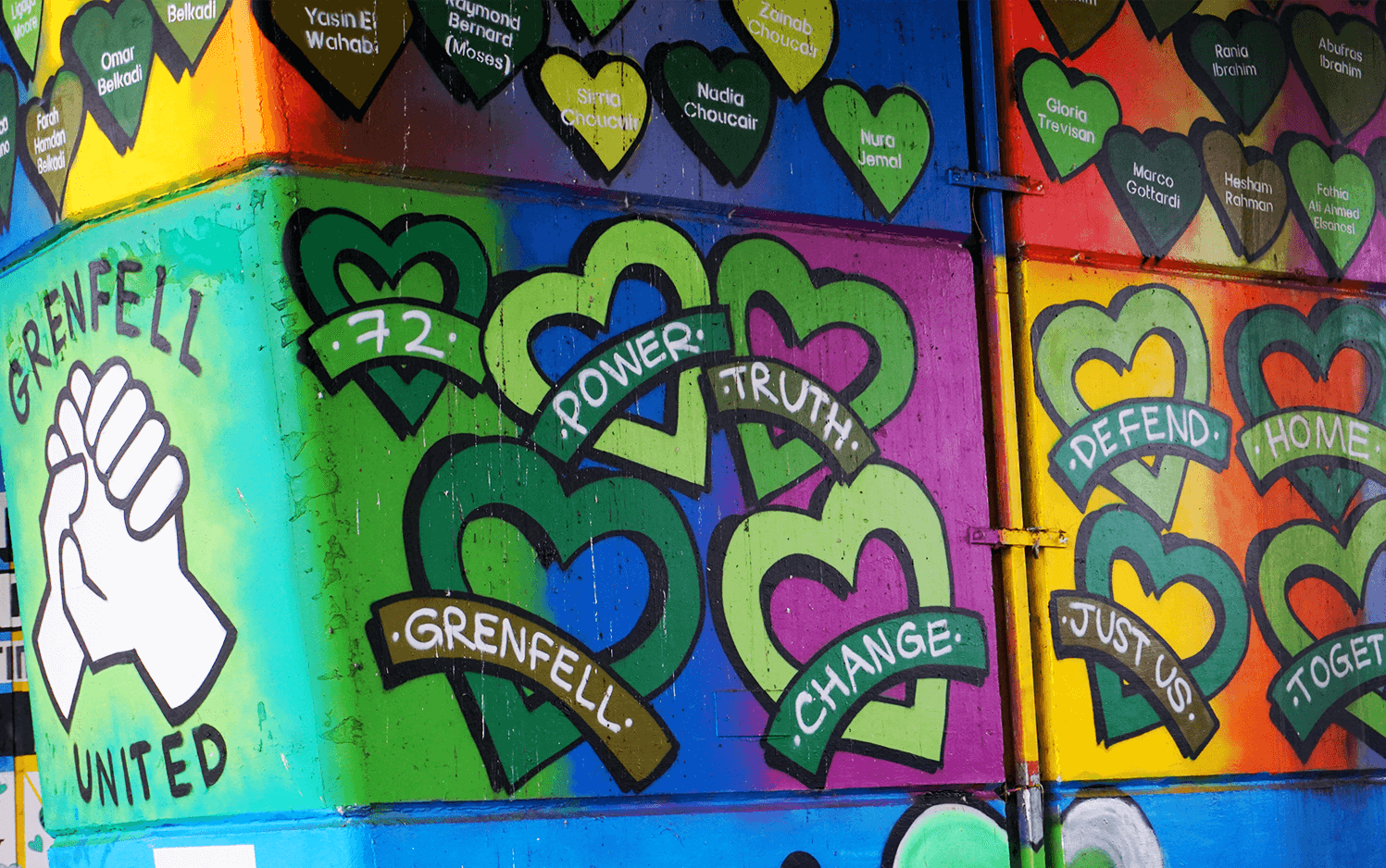Publish date: 13 June 2019
By Dr Sarah Heke Consultant Clinical Psychologist, Adult Therapy Team
Throughout the course of our journey with Grenfell Tower fire survivors, bereaved family members and the local community we have faced many difficult moments.
These have included things that might be expected following a traumatic event, and moments unique to this incident. At every stage, the team has aimed to respond with compassion and understanding. To know what meaningful, psychological care looks like for these unexpected moments has been a collaborative process.
The Grenfell Health and Wellbeing team have walked alongside people through the important and painful processes of:
• giving and hearing commemorations and evidence at phase one of the Public Inquiry
• returning to Grenfell Tower to collect belongings and say goodbyes
• sharing information and giving evidence as part of the criminal investigation
• listening to 999 calls from family on the night of the fire
• receiving personal property retrieved from Grenfell Tower and
• receiving the comprehensive coronial evidence packs released by the Coroner.
On a human level it can be hard to think about the level of distress associated with these moments. As a therapy team, offering support at these times was unprecedented work.
We needed to have a presence and be responsive if needed, and to be unobtrusive and respectful It was also unprecedented for our police, legal and other criminal justice colleagues and we have learned together how to best support people faced with these difficult moments.
Often the emotional distress that these experiences evoked was an entirely natural response, and for some holding a hand was appreciated. As psychologists and therapists, we were also considering how to psychologically prepare people by understanding their own experiences and past and present difficulties and how this would influence their coping.
Within this, we were also prepared with resources to help with grounding, e.g. having essential oils, squeezy balls to use peoples’ senses to help them re-orientate if experiencing any overwhelming intrusive images, memories, thoughts or physical feelings.
We also ensured we had time to reflect on how these experiences affected people and agreed plans to support people in the hours, days and weeks after these difficult moments.
Overall, the feedback has been that this approach of collaboratively ‘walking alongside’ both individuals and professionals has engendered a strong sense of trust, support and empathy. It has also provided a unique way of engaging the community with psychological therapies in building these relationships and fostering an understanding who we are and that we are willing to be flexible, responsive and to make use of our psychological training in ways which may not be typical within an NHS setting.
We have also developed a greater understanding of our clients and colleagues alike and could have different conversations with people we may not have reached otherwise. Responding to these requests has been an exercise in innovation, flexibility, and collaboration.
We will continue to offer this support.
